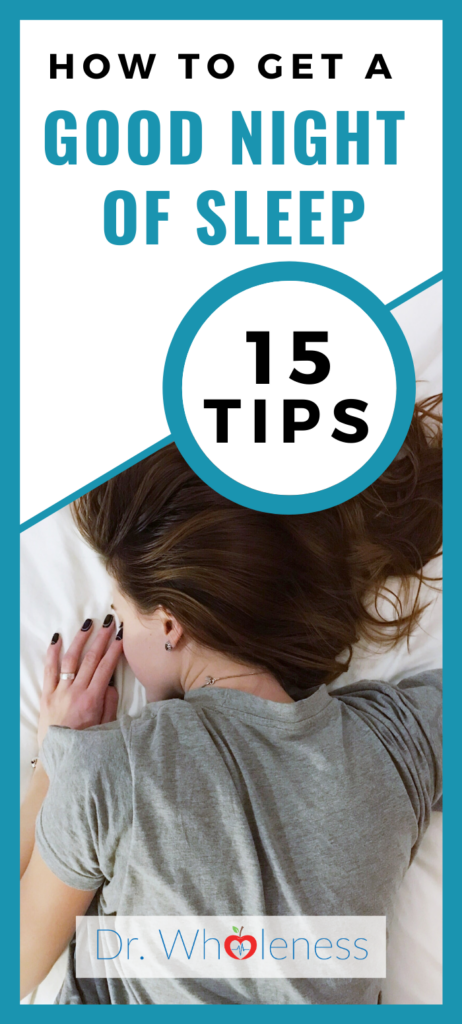A house that is never cleaned, is like a body chronically deprived of sleep. Sleep cleanses, refreshes, organizes and regenerates our mind and body. However, for many sleep is allusive and not as easy to come by as counting sheep. That’s why we’re going to dive into the top things you can do to get a good night of sleep.
Sleep prepares our body and mind for the day to come. Sleep in all its glory should function as a reboot just like a computer runs more efficiently and is less likely to freeze after a reboot, just as it is with our bodies.
Assessing the quality of your sleep
- Do I need an alarm to wake me up in the morning?
- Does my emotional stability wain significantly as evening approaches?
- Am I able to wake up and feel good at the same time on weekdays and weekends?
- Do I need stimulants to keep me awake?
If we answer yes to any of these questions, then there is a strong likelihood that we are either experiencing a low quantity or quality of sleep.
Accumulate Health via non-REM (physical regeneration) and REM (emotional regeneration) sleep night after night.
P.S. – If you’re using a CPAP machine at night for sleep apnea, check out this post on how to detach from a CPAP machine.

Obstacles to a good night of sleep and how to overcome them
- Too much light at night or in your bedroom (even those little blue or red lights on clocks, air purifiers, and AC units can be problematic)
- Lack of light during the day (try to get natural light early in the day or use a lightbox)
- Sedentary lifestyle – movement, sweating, heavy breathing set in motion a cascade of hormonal and neurotransmitter events that lead to the body desiring and expecting sleep.
- Working out after 4pm (try to get your workout in before 4pm)
- Clock watching – put your clock where you cannot see it.
- Hot room (60-68 degrees considered optimal)
- Blue light gadgets (stop using 2 hours before bed if you have sleep issues)
- Going to bed at a different time each night. Keep your sleep schedule consistent. The body loves rhythm and will support your desire for sleep if you go to bed and get up at essentially the same time each day.
- Do not eat before bed. Even though our brains may tell us we need that little or big snack before bed, the reality is that the best thing for our hormones and sleep quality is not to eat before bed. Aim for a minimum of 2 hours with no food before bed.
- Dehydration (causes low melatonin output which makes falling and staying asleep problematic) – start each morning with a tall glass of spring or purified water so you don’t have to guzzle water in the evening to make up for hydration lack during the day.
- If your mouth is open at night, your quality of sleep will suffer and your potential for respiratory illness and allergies will increase. Try using mouth tape to improve your oxygen intake and quality of sleep.
- If your bed is uncomfortable or your pillows aren’t supportive, then your quality of sleep will suffer.
- Working on projects in your bedroom. Make your bed a haven of rest and relaxation. Doing work projects or solving the world’s problems is great but find someplace else to do them, otherwise, your body will have a challenging time figuring out if it should be stimulated or if it should be going into sleep mode.
- Caffeine, alcohol, chocolate, tobacco, soda pop…they bring us up and put us down. If insomnia is an issue, then don’t have caffeine or at last no caffeine after 12pm. Alcohol can be relaxing but after its relaxing effect, it becomes arousing and can greatly affect sleep quality.
- You may also want to consider if you are actually sleeping but not experiencing the sleep. Not perceiving sleep is a common issue in chronic insomnia. People say they never slept, but in reality, they actually were asleep for 80% of their laying downtime period. So, you could be asleep but not experiencing sleep.
Supplement support for a good night of sleep
To help reset circadian rhythms try taking Adrenal Refresh first thing in the morning to get your vital signals turned on and ready for the day and then take Cortisol Metab about 2 hours before bed to turn everything back down and get any excess cortisol broken down so you can experience a restful rejuvenating night of sleep.

I have always been “sleep challenged” when it comes to staying asleep past 5 hours. Competitive CrossFitter, which isn’t really helping the sleep situation. As I begin to hit menopause the sleep challenge is upping its game. Excited to try the adrenal and coritsol products.
Hi Cherianne, looking forward to hearing how they work for you.
– Dr. Matt
Pingback: 10 Tips To Sleep Well – Dr Wholeness